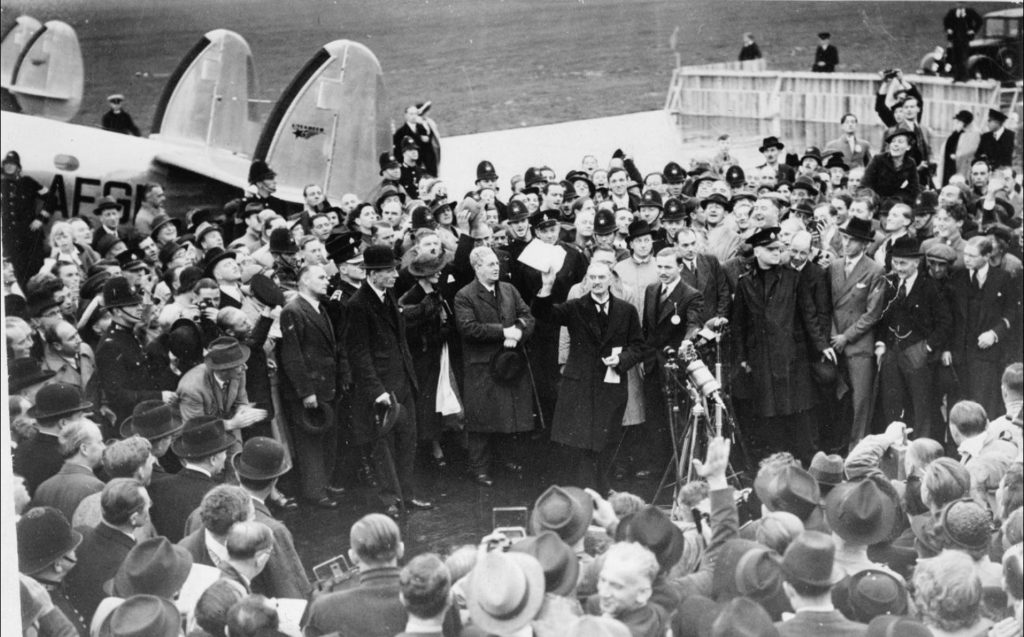Roger Spalding

Neville Chamberlain holds the paper signed by both Hitler and himself on his return from Munich.
I often read in applicants’ personal statements that they wish to study History to avoid repeating the mistakes of the past. This is sadly, something that rarely occurs; humanity appears to have an infinite capacity to repeat its mistakes.
Yet politicians and journalists frequently draw historical parallels with the past. The current Defence Secretary said, in relation to developments in Ukraine, ‘that there was a whiff of Munich in the air’. He was referring to the efforts of the British Prime Minister to avoid war in 1938 by ‘appeasing’ Hitler.
Neville Chamberlain’s efforts culminated in the Munich Conference at which the Czechs, were forced to cede the Sudetenland to Germany. The parallel with Ukraine breaks down because, as yet the West is not asking Ukraine to cede land to Russia; though they did fail to act when Putin annexed Crimea in 2014.
In 1938 the British were terrified of war. This was partly because of the memory of the of the First World War, and partly because of the development of the bomber.
Stanley Baldwin had told the Commons that ‘the Bomber will always get through’. Its targets would include women and children, and the only defence would be to kill even more of the enemy’s women and children. Shortly after, Beverley Nicholls published his anti-war tract, Cry Havoc. In one chilling passage he argued that it would be possible for an enemy, in a single raid, to drop enough poison gas to kill most of the population of Greater London.
In 1938 Mass Observation conducted a survey this revealed that a significant number of people were preparing to kill themselves should war break out. War, it was believed, would bring Armageddon from the skies, a view vividly portrayed in the 1936 film, Things to Come.
In 1940 Michael Foot wrote that post-1918 Germany was treated harshly when she was weak and democratic; but the reverse was true when she became strong under the Nazis, this was partly because Hitler was seen as a bulwark against Communism. This proved a short-term benefit leading to long-term pain.
Historians are not supposed to speculate, but here are a number of ‘ifs’ to consider: If Western politicians and banks had been less ready to accept and handle resources plundered from Russia; if the West had taken a stronger line when the Russian state murdered journalists; if the reaction to the poisoning of British residents had been more severe; if we had not allowed Britain to become a safe haven for Russian oligarchs; a message might have been sent that the West adheres to certain norms that it would not abandon.
Clear opposition to lesser transgressions might have helped to avoid this much larger and more serious transgression…. if we had learnt the lessons of History?
Roger Spalding is Programme Leader for History at Edge Hill University.
